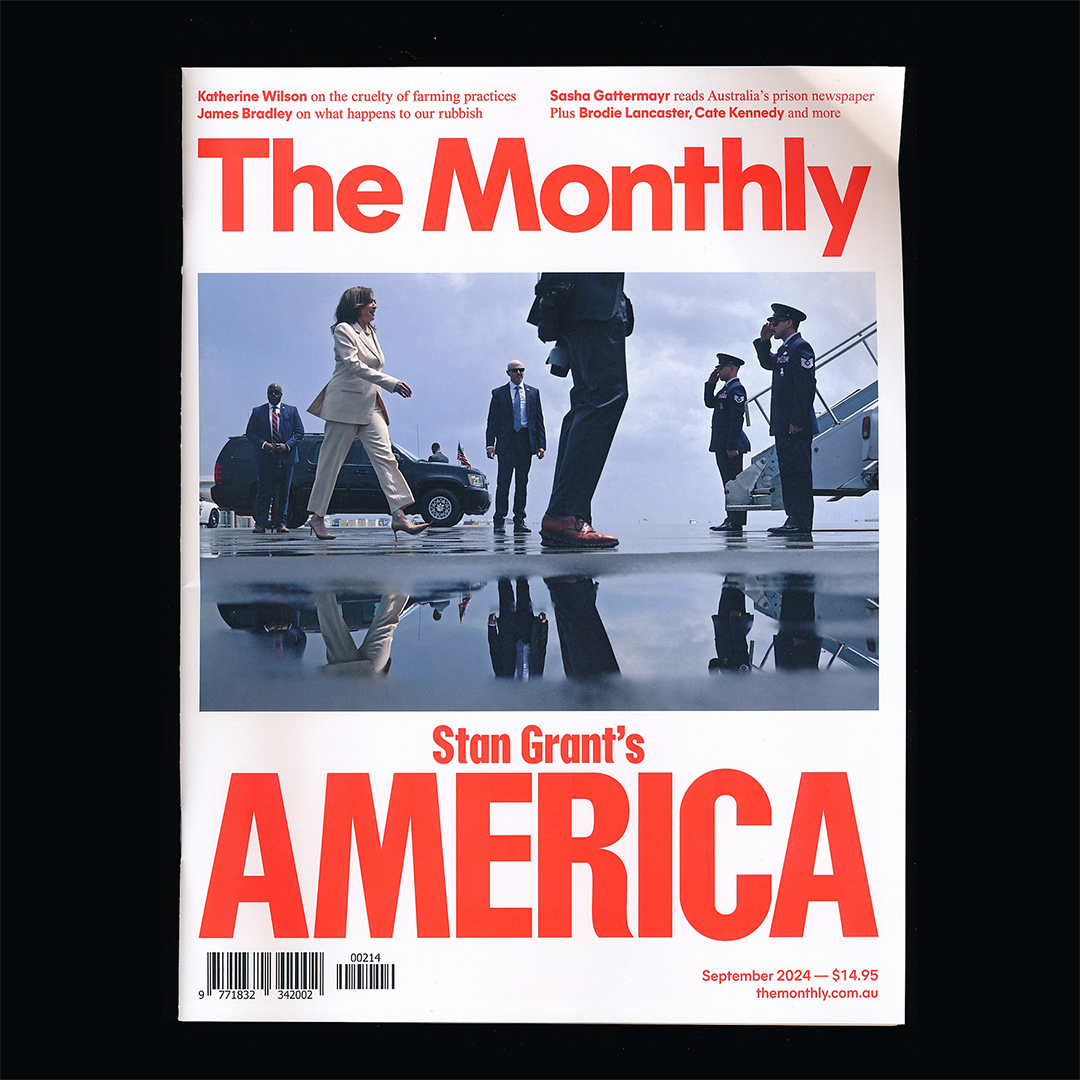
The Monthly September issue 2024
$14.95
There is, perhaps inevitably, a gulf between the stories we tell ourselves and the realities of the world in which we live. The way we think about the food on our plates, what happens with our rubbish, and how our society treats its vulnerable and its lost, is so often sanitised in the interests of getting through the day. Great journalism – great reading – doesn’t look away. It lives in the space between the imagined and the uncomfortable: storytelling and truthtelling combined.
National myth-making – the stories we tell about what a country means, socially, politically, imaginatively – is never more readily on display than during an election campaign. In our September cover essay, Stan Grant unpacks the story of America: its promise, its self-belief and, to his mind, its collapse. In a wide-ranging reimagining, Stan tackles the self-serving lies of national exceptionalism that underpin the Trump/Harris showdown, and reckons with what the rhetoric of the Great American Experiment means, and what it might mean if it has already failed.
Award-winning science writer James Bradley, fresh from his masterpiece Deep Water, is diving into far less palatable territory with his new essay, trying to make sense of what is happening with Australia’s sizeable – and growing – waste problem. The numbers are sobering, with more than 76 million tonnes of waste produced each year. So James gets himself down to one of the country’s 1300 landfill sites to see how it works and why it matters.
Meat production is an area where I think most of us, instinctively, understand that the less we know the better. There’s a reason the expression exists around not seeing how the sausage gets made. Activist and filmmaker Chris Delforce, interviewed in an essay from Katherine Wilson in the September issue, argues that “if Australians knew about farm conditions and practices, and if we could only witness the sentience and suffering of farmed animals, we’d never consent to consuming them”. Katherine’s essay is unflinching in its account of what’s happening in our farms. It’s grim stuff, but powerful and necessary.
Elsewhere across the issue’s pages, there’s architecture and literature, an unusual Canadian game played in a bar in inner-city Melbourne, and an irresistible earworm courtesy of The Village People. If the tales we tell ourselves are imperfect, or only part of the story, instead let The Monthly provide you with smart, engaging, surprising context that makes sense of the world.
